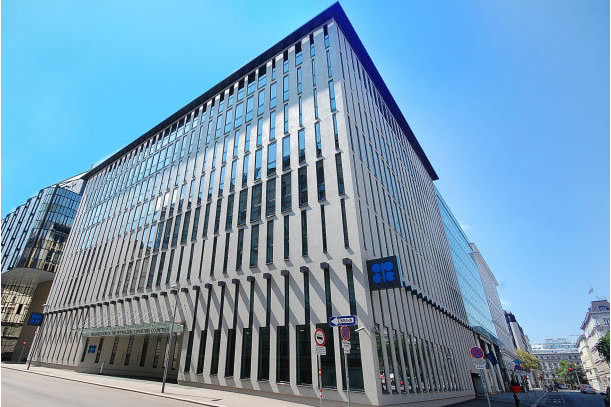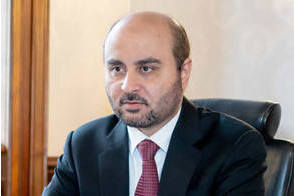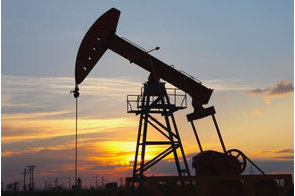Latest News
Oil prices rise to over $68 as OPEC+ takes cautious approach to recovery

News Highlight
Amid OPEC+ tentativeness, investors expect prices to further increase. Goldman Sachs has raised its Brent forecast to $75 pbl for the second quarter of 2021 and $80 pbl by Q3.
The Organisation of the Petroleum Exporting Countries and its allies took investors by surprise on Thursday when the group, called OPEC+, decided to retain its agreed production quotas for April, with some exceptions. Saudi Arabia, the largest producer in OPEC, volunteered to extend its unilateral output cut of one million barrels a day (bpd) through next month.
Ahead of the meeting, which held virtually, Russia and Kazakhstan were pushing for production increases. A compromise was reached, allowing the two oil producers to boost their output by 130,000 and 20,000 bpd, respectively. The rest of the group, which includes Nigeria, agreed to a rollover of current level of production based on the output cut deal reached last December.
OPEC+ had reached an agreement in December to increase output by 500,000 bpd in January this year and make further adjustments in the coming months. However, at the meeting yesterday, Saudi Arabia counseled against raising production. The country's officials, led by Prince Abdulaziz bin Salman – the Saudi oil minister – argued that the global economic recovery is still fragile as new coronavirus variants are fast-spreading and may elude vaccines.
“The right course of action is to keep our powder dry,” bin Salman said, urging for concrete signs of demand recovery before increasing production. “Let us be certain that the glimmer we see ahead is not the headlight of an oncoming express train.”
Following news of the group's decision to largely extend its output cut deal, Brent crude futures jumped more than 4 per cent to $66.7 per barrel (pbl) yesterday. The global oil benchmark further rose on Friday by 3 per cent to $68.49 pbl – as at 12.30 p.m., Nigeria time – reaching its highest level since January 8, 2020. The U.S. West Texas Intermediate (WTI) crude futures were trading at $65.38 pbl, compared to $61.15 two days ago.
“Prices are essentially what they were before the COVID-19 crisis, the voluntary cuts by Saudi Arabia have made all the difference and other OPEC+ members have every reason to be grateful for the Kingdom’s ability and willingness to take on the leadership role that they have,” said Andy Brogan, Ernst & Young’s global oil and gas leader.
Ann-Louise Hittle, the vice president of macro oils at Wood Mackenzie, a global energy company, said the market was expecting "substantial" increase in production. However, “OPEC+ has decided to take a cautious approach to demand recovery,” Hittle noted, according to the oil and gas platform, Rigzone.
As OPEC+ pushes global oil demand recovery to later in the year, recovery in demand for air travel may also not happen soon. Data on international passenger demand in January released by International Air Transport Association (IATA) this week shows passenger traffic fell in January 2021, compared to December 2020 and pre-COVID levels. IATA said “2021 is starting off worse than 2020 ended and that is saying a lot.”
According to Reuters, analysts are reviewing their price forecasts to reflect the continued supply restraint by OPEC+ as well as U.S. shale producers, who are holding back spending in order to boost returns to investors.
Amid OPEC+ tentativeness, investors expect prices to further increase. Goldman Sachs has raised its Brent forecast to $75 pbl for the second quarter of 2021 and $80 pbl by Q3.
Oil prices, which have remained above $60 pbl since February 8, 2021, will strengthen Nigeria's economic recovery. Nigeria’s GDP data released by the National Bureau of Statistics earlier this month showed a weak oil sector, which contracted by 19.76 per cent in Q4 2020. The increase in prices will also boost revenues for Nigeria and many other oil producing countries that are facing severe fiscal crisis due to low prices caused by the COVID-19 pandemic.
Related News
Latest Blogs
- Access Holdings and African art renaissance
- NMDPRA should balance local content with market competition
- Why ‘T-Pain’ should be Tinubu's least worry
- Access Bank Project 111 providing a lifeline for women battling fibroids
- How Nigeria can boost maritime financing
Most Popular News
- Kenya’s KCB Bank signs €230mn deal to support SMEs, youth and women
- AfDB has invested $1.44bn to support infrastructure development in Nigeria
- Airtel Africa records broad growth in half year results
- UK budget to drive wealth and talent exodus from Britain - investor
- COP29: Multilateral development banks to boost climate finance
- Unpaid care work prevents 708m women from participating in labour market







